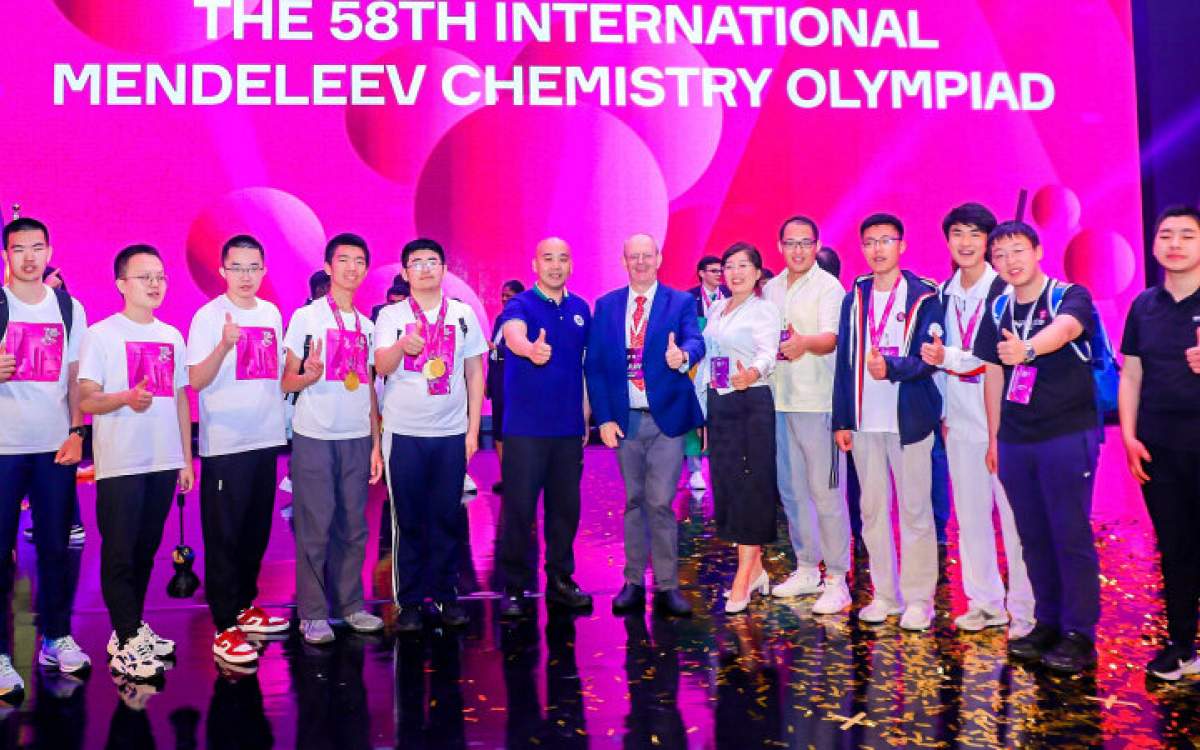The Iran Project
: The joint Russian-Chinese University MSU-BIT in Shenzhen summed up the results of the 58th International Mendeleev Olympiad of schoolchildren in chemistry (IMO-58).
Thursday 2 May 2024 - 18:57
Story Code : 420855
Source : Tehran Times
Winners of International Mendeleev Olympiad in Сhinese Shenzhen are announced
Gold medals were awarded to Aleksey Mikheev (Altai Territory), Aleksandra Romashova (Kazan), Vadim Kharisov (Republic of Bashkortostan), Rasul Efendiev (Moscow). Silver medallists of the Russian team – Lev Avvakumov (Samara), Timur Akhmedov (Moscow), Viktor Demidov (Novosibirsk), Vladimir Elistratov (Nizhny Novgorod), Aleksey Sharpilo (Krasnodar Territory).
The representatives of the Chinese national team became the winners of the 1st and 2nd degree of the Academician Valery Lunin Prize. Schoolchildren from Bulgaria, Vietnam and Kazakhstan also won gold medals.
At the Mendeleev Olympiad, according to the practice of international championships for schoolchildren, 10 per cent of the best participants get gold medals, 20 per cent get silver medals and 30 per cent get bronze medals.
The Organising Committee of IMO-58 was headed by Vice-President of the Russian Academy of Sciences, Scientific Director of the Department of Chemistry of the Lomonosov Moscow State University Stepan Kalmykov, Rector of the Russian-Chinese University MSU-BIT Li Hezhang and General Director of the Melnichenko Foundation Tatyana Zhuravleva.
During the solemn closing programme of the Olympiad, the ceremony of laying the Mendeleev Garden on the campus of MSU-BIT University took place.
"There is no doubt that the Olympiad took place as a platform for cooperation and dialogue between representatives of the international educational and scientific community. It helps break down barriers and build bridges. The Melnichenko Foundation will continue to support the Mendeleev Olympiad, as we attach great importance to both helping talented schoolchildren and expanding global cooperation between non-profit organisations, especially those from BRICS+ countries. The Foundation initiated the creation of the League of Foundations, which aims to establish horizontal ties between non-profit organisations from different countries," said Tatyana Zhuravleva, General Director of the Melnichenko Foundation and Co-Chair of the IMO-58 Organising Committee.
This year the Mendeleev Olympiad gathered a record number of participants – more than 200 schoolchildren and mentors from 29 countries (including observers), including Belarus, Brazil, Kazakhstan, China, Kenya, Serbia, Russia, Saudi Arabia, Syria, Tajikistan, Turkmenistan, Turkey, Sri Lanka, Cuba and others. IMO traces its history back to the All-Union Chemical Olympiad and continues its traditions and numbering.
The national teams are made up of high school students who are winners of national chemistry olympiads. The competition consisted of three rounds: two theoretical and one experimental. The tasks of the first round in complexity correspond to the programme of specialised chemistry classes of high school, the second round offers tasks of a higher level. The experimental round of the Olympiad lasts 5 hours, it implies that students have skills of working in a chemical laboratory: the ability to perform chemical analysis of substances and synthesis according to the proposed method.
"The scope of tasks of such competitions as the Mendeleev Olympiad covers the whole world. It is not just a competition. Here the foundations are laid for many years of friendship and co-operation between future eminent and great scientists. Satellite events such as round tables, mini-conferences and best practices during the Olympiad help to develop and enrich chemistry education worldwide. And that is why it is so important that the Olympiad was held outside the CIS for the first time. We plan to announce the 2025 host country shortly," said Stepan Kalmykov, Chairman of the IMO-58 Organising Committee, Vice-President of the Russian Academy of Sciences and Scientific Head of the Chemistry Department of Moscow State University.
The year 2024 marked the 58th edition of the IMO. For the first time in its history, the IMO was held outside the CIS. The Olympiad was traditionally organised by the Faculty of Chemistry of Lomonosov Moscow State University and the Melnichenko Foundation. The championship of young chemists was held under the aegis of the Decade of Science and Technology in Russia announced by Russian President Vladimir Putin and is part of the initiative “Science to Win”.
Reporter : Editorial of The Iran Project
# Tags











